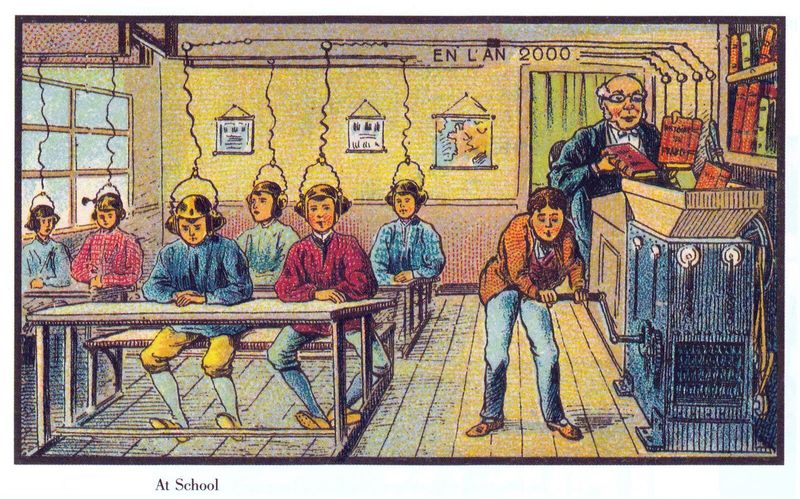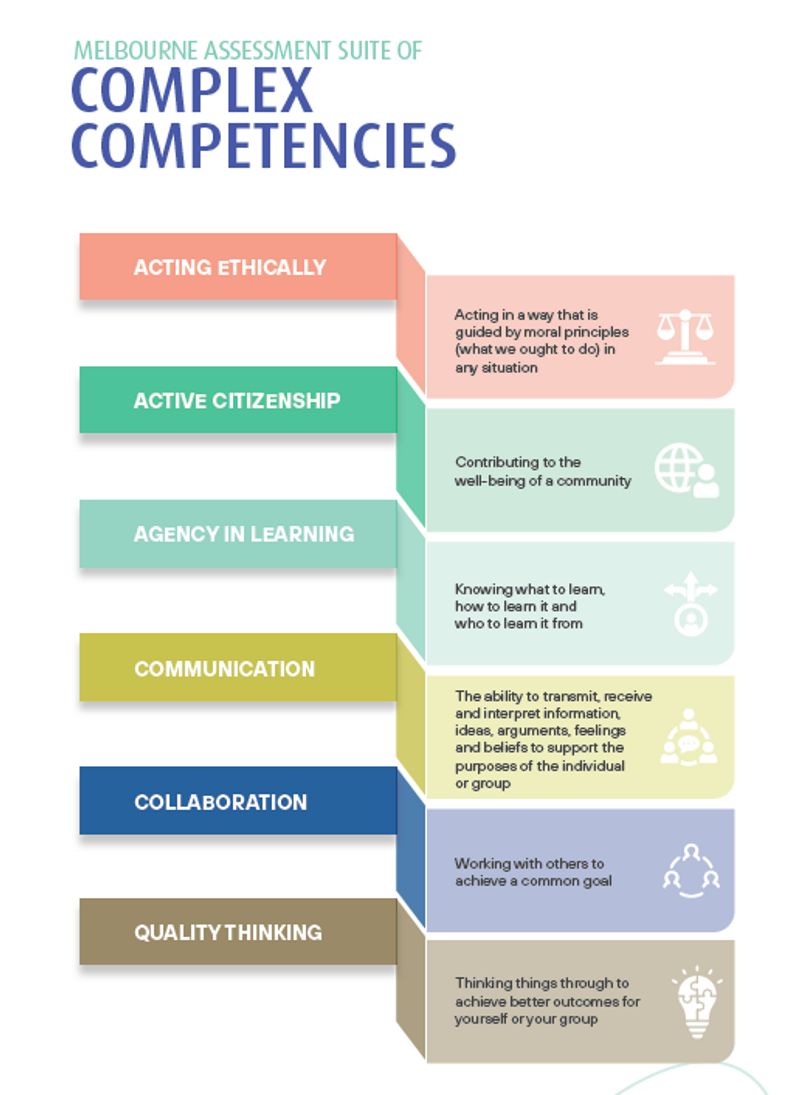

I recently encountered this image, one of a series of pictures by Jean-Marc Côté and other French Artists published between 1899 and 1910, depicting the world as they imagined it in the year 2000. This particular one has been discussed widely in educational circles, with differing interpretations.

My initial reaction was that if you replaced the headphones with a mobile device and took the young people out of an educational setting, there are aspects that are not too far off our current reality. Thankfully, however, educational settings in the 21st century do not look like this room, where disengaged students passively receive knowledge that has been selected from books and transmitted by a pleased-looking teacher.
But how do we measure the attainment of the skills and competencies that we know are going to be vital for our students in their futures when, for the vast majority of our students who are heading towards a university education, there is a narrow focus where tests, exam scores and the ATAR act as a measure of student achievement?
We at Ivanhoe Girls’ have always known that our students are much more than the narrow measure of their ATAR. I think the ATAR may be important at a point in time as it can open doors for our students to the next stage of their learning journey, but the reality is as soon as that point in time passes and they have walked through the door, the only things that matter are who they are as a person and how well they have learnt to learn.
This is an issue that schools, universities, and industries across Australia have been grappling with for some time. The University of Melbourne’s New Metrics for Success research-practice partnership is giving innovative school leaders from across Australia the opportunity to collaborate on changing the ‘grammar of education' for the 21st Century.
Leading this research is Professor Sandra Milligan who has noted that: “the distinctive 20th-century version of schooling – with its age-based year levels, standardised testing, exams and timetables organised around short classes in subject areas – is past its use-by date. Vice-Chancellors know that an ATAR is meaning less and less because it doesn’t address the kinds of things the community wants,” she said. “No one wants an Accountant who just wants to know how to put the right numbers in the right columns. A graduate’s attributes are just as important as their knowledge of the substantive content.”

The University of Melbourne New Metrics for Success project has made significant progress across the last couple of years in identifying a competency framework and developing tools to help teachers assess these complex competencies in a consistent way. Complex competencies are multiple knowledge, skills, attitudes, and values that combine to form an attribute. Examples of complex competencies include: Agency in Learning; Acting Ethically; Active Citizenship; Communication; Collaboration; and Quality Thinking.
The current stage of the project that we are involved in is evaluating whether these new forms of assessment can be used to better identify students’ strengths and interests relevant to tertiary pathways. A pilot group of teachers at Ivanhoe Girls’ will assess a group of students using the University’s secure online assessment platform, in three competencies: Agency in Learning, Collaboration, and Communication.
Jean-Marc Côté rightly imagined that technology would play a significant role in education in the 21st century, but failed to predict that technology would in fact elevate the importance of human skills such as these.
Ms Narelle Umbers,
Principal